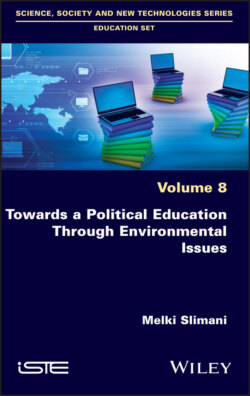Читать книгу Towards a Political Education Through Environmental Issues - Melki Slimani - Страница 19
1.3.2.1. Environmental ethics: a democratic deliberation rich in political teachings
ОглавлениеA meta-ethical analysis of environmental ethics (Létourneau 2010) shows the presence of two positions: principled positions and situational (contextual) positions.
Larrère (2010) identifies biocentrism and ecocentrism as the two main currents of principled position in environmental ethics:
– biocentric ethics is opposed to a position that recognizes moral dignity only for human beings (anthropocentrism). Its ambition is to show that natural entities possess intrinsic value, by substituting a multiplicity of individuality for the anthropocentric duality of the opposition between humans and things. It insists above all on the principle of the equal status of all living beings;
– ecocentric ethics considers that value should be given not to individual entities but to the biotic community as a whole by advancing the formula that “something is right when it tends to preserve integrity, the stability and beauty of the biotic community. It is unjust when it leans in the opposite direction” (Leopold, quoted by Larrère 2010, p. 408). Unlike biocentrism, ecocentric environmental ethics emphasizes the interdependence of elements in biotic communities: it is indeed a holistic ethics that opposes the individualism of biocentric ethics.
The main characteristics of biocentrism (intrinsic value) and ecocentrism (biotic community) are also at the origin of the criticisms put forward for these two trends in environmental ethics. For biocentrism, Larrère (2010) raises the question of the capacity of such an overly individualistic approach to respond to the needs of a nature protection policy that necessarily involves choices between several possible scenarios and where the protection of the environment is not a priority and where the protection of nature necessarily implies the consideration of complex entities such as populations, ecosystems and landscapes.
For ecocentrism, the consequentialism adopted, which measures the quality of an action by its effects on the biotic community, tends to sacrifice individuals to the common good of the community, whereby humans are doubly sacrificed as individuals and as a species.
Both of these trends in environmental ethics are based on the condemnation of anthropocentrism. They are opposed to a narrow vision of the conception of instrumental value that does not take into account the diversity of instrumental values.
The monistic vision of value is replaced among pragmatists by a pluralist and rational vision within a democratic framework defining a new position of environmental ethics: the pragmatist posture of applied ethics (Larrère 2010).
The contextual posture corresponds to the pragmatism of applied environmental ethics.
This pragmatic approach uses the democratic foundation of “value pluralism”: the solution to an environmental moral problem corresponds to a hierarchy of values derived from public deliberation and debate for the justification of environmental action.
This ethical orientation has the advantage of going beyond the limits of the anthropocentric approach (instrumental value ethics), the biocentric approach (intrinsic value ethics condemning anthropocentrism and which is principally deontological) and the ecocentric approach (mainly consequentialist, where the value of action is measured by its effects on the biotic community). In fact, at the heart of ethical pragmatism are the democratic values of value pluralism that promote democratic deliberation on the “appropriateness” between certain moral positions and scientific positions (Larrère 2010). This ethical deliberation is modeled by Legault (2003), who assumes that any ethical decision is worked out in two stages. This has two inseparable aspects: the first consists of deciding on the end objectives, and the second on the means of achieving the desired objectives. This conception implies that the reasons for the decision must take into account both the ends and means by allowing for a pluralism of moral action in concrete decisions (Legault 2003). Ethical deliberation on the values of the environment, which makes it possible to go beyond the limits of deontology or consequentialism, is thus rich in political teachings.
